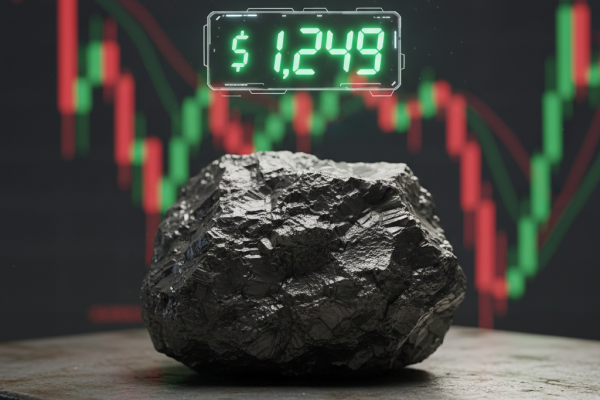April 13th, 2022 | 17:50 CEST
Infineon, BrainChip, Nvidia - Chip market facing the next wave
Due to current events in connection with the Ukraine conflict and the announced sanctions against Russia, certain everyday goods are becoming scarce. Currently, consumers face empty supermarket shelves for sunflower oil, for example. It seems almost forgotten that there is also still a shortage of semiconductors. This crisis could worsen because of the war. One reason is that the noble gas neon, which is necessary for chip production, could run out. Intel CEO Gelsinger expects the chip shortage to last into 2023.
time to read: 3 minutes
|
Author:
Stefan Feulner
ISIN:
Table of contents:
Author
Stefan Feulner
The native Franconian has more than 20 years of stock exchange experience and a broadly diversified network.
He is passionate about analyzing a wide variety of business models and investigating new trends.
Tag cloud
Shares cloud
BrainChip at an attractive level
It was undoubtedly one of the outperformers in the first month of the current stock market year. The shares of the Australian company BrainChip Holdings, which also has subsidiaries in the US, India and France, almost quadrupled from AUD 0.71 to AUD 2.25 within one month. The announcement that Mercedes intends to develop systems based on BrainChip's Akida hardware and software caused a veritable buying panic. Among other things, the technology makes the "Hey, Mercedes" voice control in the EQXX five to ten times more efficient than conventional voice control. Since February, the stock has been in a strong consolidation phase, which is not unusual for such an innovative technology company. At AUD 0.805, the 78.6% correction level comes in, offering an interesting entry opportunity in the long term. The share, trading in Australia and Frankfurt and in the US, is currently trading at AUD 0.865, equivalent to EUR 0.59. The stock market value has melted down to EUR 1.12 billion.
"Most efficient solution ever"
Fundamentally, BrainChip, the world's first commercial manufacturer of neuromorphic AI chips, continues to optimize the Akida chip, which management says is "the most efficient AI solution ever produced." Extremely low-power and high-performance, the Akida processor supports the growth of edge AI technology by using a neuromorphic architecture, a type of artificial intelligence inspired by the biology of the human brain. With each transaction, Akida thereby learns independently. As a result, the technology is ideally suited for modern edge devices and is expected to be used in autonomous driving, IoT devices, robotics, medical diagnostics and security technology.
A partnership has now been announced with SiFive, the founder and market leader of RISC-V computing. Thus, the respective technologies have been combined to offer chip designers optimized AI/ML computing power at the edge of the network. For BrainChip, the addition to its product portfolio is an opportunity to integrate Akida technology into a market-leading product offering, creating an efficient combination for edge computing.
Further setback potential
The fact that corrections do not only affect innovative and new technology companies is demonstrated by the shares of Nvidia. Nvidia is the largest graphics processors and chipsets developer for personal computers, servers, and game consoles. After peaks of USD 347.00, the US shares fell by more than 35% to USD 219.00. The correction still seems to be far from over. The upward trend formed since the Corona low at the beginning of March 2020 currently runs at USD 207.00. Should this be broken, prices in the range of USD 150.00 would be quite possible.
The analyst firm Baird caused red rates by downgrading Nvidia to "neutral" from "outperform". In addition, the price target was massively cut from USD 360.00 to currently USD 225.00.
Analysts lower the thumb
The British investment house Barclays lowered its price target for Infineon from EUR 45.00 to currently EUR 30.00. The rating was left at "equal weight". After solid growth in the years 2020 to 2022, there are increasing signals of a short-term downturn in the semiconductor industry, analyst Keagan Bryce-Borthwick believes. In the long term, however, he remains confident with regard to the entire industry.
On the other hand, the Munich-based company wants to expand its chip production for the automotive industry. As a result, the plant in Indonesia is to be expanded. Through a takeover of factory buildings at the Batam site, production space could be doubled. The production should start in 2024, Infineon announced on Tuesday. Automotive division board member Thomas Kaufmann pointed to the growing demand for automotive semiconductors.
Chart technically, the picture has clouded significantly. If the annual low at EUR 25.69 is undershot, the next significant resistance would be EUR 22.50.
According to industry experts, the semiconductor crisis is likely to keep us busy until at least 2023. BrainChip is working on real innovation with its Akida technology and has largely put its correction behind it. At Nvidia and Infineon, on the other hand, the technical picture does not yet send any signals of relaxation.
Conflict of interest
Pursuant to §85 of the German Securities Trading Act (WpHG), we point out that Apaton Finance GmbH as well as partners, authors or employees of Apaton Finance GmbH (hereinafter referred to as "Relevant Persons") may hold shares or other financial instruments of the aforementioned companies in the future or may bet on rising or falling prices and thus a conflict of interest may arise in the future. The Relevant Persons reserve the right to buy or sell shares or other financial instruments of the Company at any time (hereinafter each a "Transaction"). Transactions may, under certain circumstances, influence the respective price of the shares or other financial instruments of the Company.
In addition, Apaton Finance GmbH is active in the context of the preparation and publication of the reporting in paid contractual relationships.
For this reason, there is a concrete conflict of interest.
The above information on existing conflicts of interest applies to all types and forms of publication used by Apaton Finance GmbH for publications on companies.
Risk notice
Apaton Finance GmbH offers editors, agencies and companies the opportunity to publish commentaries, interviews, summaries, news and the like on news.financial. These contents are exclusively for the information of the readers and do not represent any call to action or recommendations, neither explicitly nor implicitly they are to be understood as an assurance of possible price developments. The contents do not replace individual expert investment advice and do not constitute an offer to sell the discussed share(s) or other financial instruments, nor an invitation to buy or sell such.
The content is expressly not a financial analysis, but a journalistic or advertising text. Readers or users who make investment decisions or carry out transactions on the basis of the information provided here do so entirely at their own risk. No contractual relationship is established between Apaton Finance GmbH and its readers or the users of its offers, as our information only refers to the company and not to the investment decision of the reader or user.
The acquisition of financial instruments involves high risks, which can lead to the total loss of the invested capital. The information published by Apaton Finance GmbH and its authors is based on careful research. Nevertheless, no liability is assumed for financial losses or a content-related guarantee for the topicality, correctness, appropriateness and completeness of the content provided here. Please also note our Terms of use.




